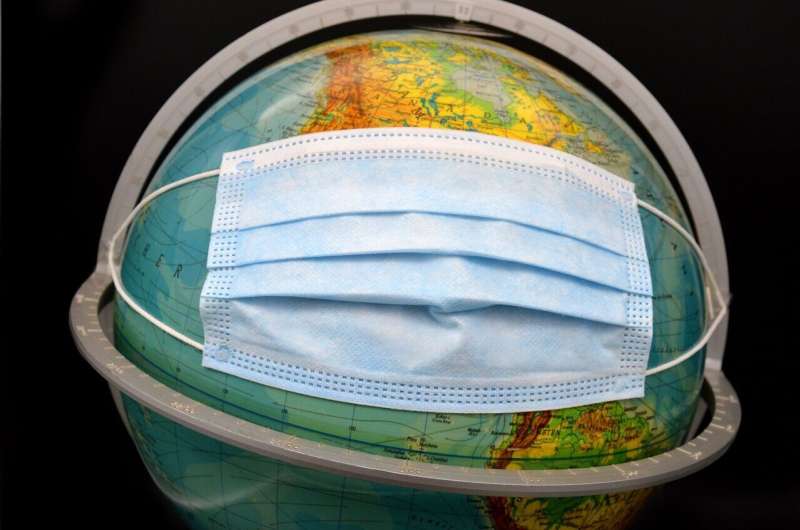Massive dataset could reveal which governments have best responded to COVID-19 pandemic

How well did our political institutions manage the COVID-19 pandemic, and are they prepared to handle future threats to the public? A research team led by faculty at Binghamton University, State University of New York hopes to answer these questions and more after compiling an extensive dataset tracking public health government responses to COVID-19 at all levels of government throughout the world.
The coronavirus pandemic provides a unique opportunity to evaluate the response of different types of government to a global crisis, according to Binghamton University Professor of Political Science Olga Shvetsova. Other types of catastrophic events, such as war and national disasters, affect select countries or regions and do not allow one to draw global comparisons.
"We are motivated by events to figure out what happened and is happening, and develop new understandings of how government works and politicians function and respond to crises," Shvetsova said of the collaborative lab.
Shvetsova's lab compiled a massive database comparing pandemic-related governmental policies in 82 countries on both the national and subnational levels, as part of the COVID-19 Protective Policy Index (PPI) project. The data covers the entire year of 2020, and is publicly available for researchers' use. The associated study is published in Scientific Data.
"The dataset tracks the origins and stringency of COVID-19 public health policies in the period of the pandemic when policies were the only way to reduce the virus spread (before the vaccines and effective treatments came into play)," said Shvetsova. "Commonly, we attribute policies to the government. But governments consist of many parts: There are governments at national, state, and municipal levels. Within governments there are different branches and offices, and then there is also professional bureaucracy, very important in health-related matters."
Policies tracked by the database fall into multiple categories, including international and domestic border closures, school closures, social gathering and social distance restrictions, lockdowns and curfews, medical isolation and quarantine, the restriction of nonessential businesses and services, states of emergency, and mandates requiring personal protective equipment.
In addition to political science professors and doctoral students with the department, the project has drawn colleagues from around the country and even around the world, including Canada, the United Kingdom and Russia. Undergraduate students joined the effort, too, as research assistants. The lab is collaborative, with members pitching in on data collection, brainstorming, writing and responding to requests during the peer review process.
"Pandemic policy-making is a truly global experiment in how different types of government work. It is a check on how resilient we are, and what the constitutional sources of that resilience are," Shvetsova said of the ongoing pandemic research.
Long-term, the coronavirus may offer a metric with which to judge the efficacy of different styles of government in responding to crisis. That would require reliable statistics of the number of cases and deaths, along with strong mathematical models of factors determining spread and mortality.
"These are big questions. It's fascinating to be in a moment of time when we can contemplate hypotheses and run regressions and actually glimpse the answers to those big questions," Shvetsova said.
More information: Olga Shvetsova et al, Protective Policy Index (PPI) global dataset of origins and stringency of COVID 19 mitigation policies, Scientific Data (2022). DOI: 10.1038/s41597-022-01437-9




















